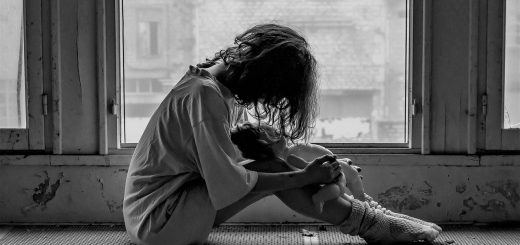“What happened to you?” – The Connection Between Addiction and Trauma
Addiction, just like many other terms that come from the psychological corner of thought, has been adopted as a term to describe behaviours or feelings that really have nothing to do with the reality of actual addiction. Addiction is a symptom and an illness. It kills people and ruins lives. So being addicted to his smile or the newest Netflix show is really not the same thing as selling your body to get money for drugs. But this is not going to be a post about ableism and how much it bothers me how people invalidate and hurt those who are seriously struggling by using terms that are not theirs to use. This is a post about addiction and trauma.
The Addicts in My Life
I’m not an addict. Or let me say it differently: I don’t have an addiction that is seriously impacting my life negatively. I had been smoking cigarettes for about 20 years until I switched to vaping and slowly cutting down my nicotine intake (which now is very low). I drink coffee every day. Up until my late 20s I drank a lot of alcohol every time I went clubbing or partying.
I have tried out most drugs at least once and smoking pot was something that happened quite frequently when I was younger. I was prescribed Benzodiazepines and I took them as prescribed but still had terrible terrible withdrawal when I slowly tapered down on them. So no, I’m not an addict. But I have danced on the tight rope a few times and was probably close to things turning ugly more than once. I can say that I’m not an addict, and I am very grateful for that.
But I have had addiction around me all my life. My father is an addict. My first real boyfriend was an addict. And my ex-husband was an addict. I know what addiction looks like. And I see it around me, every day, on the streets of Vancouver, hundreds upon hundreds of people marked by addiction.
My Father
My father is addicted to opium. It is kind of odd that it took me more than 30 years to even figure that out. Drugs were so normalized in our household that I never even questioned the smells, the people or my father’s behaviour to be anything out of the ordinary. Looking back, it all makes sense and I am appalled by not only that he is an abuser but that no one thought it was bad for an addict to be around children. Apparently everyone was aware of it, my uncles and aunts, my cousins, his friends. And everyone thought it would be okay to stay silent? I mean, he was in need of help, and so were we. But I digress. My father is still an opium addict although he is close to 80 now. Karma is not the bitch you’d want her to be.
I am not sure how much of an impact his addiction had on me. Would he have been less violent, abusive and less inclined to use me for things he was not supposed to if drugs weren’t involved? Would he have felt better or worse without drugs?
My point of this post is that addiction and trauma are strongly related. And that is definitely the case with my father. He had a terrible childhood and is an abuse and trauma survivor. So he must have had a lot of pain stuck inside of him. And he used drugs to numb that pain. I am not excusing any of his behaviour. But I can validate that he had pain (and probably still has) and unfortunately he chose unhealthy ways to handle that pain. So I’m wondering what kind of person he would have been without the drugs. More violent? Or vulnerable and broken? I can only speculate and as he will probably die an addict so I will never find out.
My Ex-Husband
When I met my ex-husband, he had just fallen off the wagon again. He had struggled with drug addiction on and off for almost 30 years at that point. He was addicted to speed and other kinds of amphetamines. Additionally, he had Hepatitis C from dirty needles. He wasn’t doing well. The addiction had made him homeless for many periods of his life, he had to sell his body for drugs. he had been in and out of psychiatry and different treatment centers. But nothing had helped him long-term.
We had met online and I told him that he can only come and visit me if he had been clean for three months. And he actually did it?! He started going to NA meetings, and he saw a therapist. He even started treatment for his Hepatitis C. And he came to visit me, we started dating.
About a year later, he had fallen off the wagon again. And I decided that I had to move in with him. So I moved countries and moved in with him. There was one instance where things could have gone really wrong. He came home with some speed and asked if I wanted to take it with him. I took it out of his hand and flushed it down the toilet. And that was it. He continued to go to NA meetings until we moved cities. He has been clean ever since, apart from a joint here and there, since 2004. I’m really happy for him.
The reason why he tuned to drugs was trauma. His mother died when he was 3 years old. He got adopted by his elderly grandparents who both weren’t doing well. They both passed away when he was 16 years old. Up until then he had been bullied at school for years. He dropped out of school and became a homeless addict. That experience traumatized him even more, so he needed more drugs to numb the pain. He is diagnosed with C-PTSD. I have seen him have flashbacks and he often talks about his trauma. Would he have become an addict if he had had a healthy childhood? No way. The only reason that he started to look for something to numb his pain, is his trauma.
Addiction and Trauma
I have long been aware of the connection between addiction and trauma. When I worked with trauma survivors, many also struggled with different kinds of addiction. And even the support groups I now manage on Facebook have many posts on addiction. But my thoughts about the connection between the two became less jumbled when I watched a documentary a few weeks ago. It was about Gabor Mate’s work on the streets of Vancouver. He has worked with the homeless and addicts for decades and came to one very important conclusion: addiction is caused by trauma. Addiction is a coping strategy to numb emotional pain and almost everyone who has been through trauma has a form of addiction.
Judgment
And there are many addictions: drugs, alcohol, food, sex, gambling, videogames, masturbation, shopping and more. But for some reason, society judges those who are addicted to drugs the hardest, often not even deeming them human anymore. We see them walk down the street, begging for money, and we turn away. What we need to understand is that they are the ones with the most severe trauma and pain. The stronger the overwhelming pain, the stronger the need to numb the pain, the stronger of a tool you need to numb the pain. What I found very profound was when brought up that we shouldn’t ask: “Why are you doing this?” or “What are you doing?” but “What happened to you?”. To be able to get away from addiction, you need to work on healing the trauma and pain that has pushed you into addiction.
What Happened to You? – Addiction and Trauma
Addicts are more likely than not survivors of childhood trauma. The people that society sees as an ugly stain on the otherwise clean streets, are not bad people. They are forced to do petty crime to feed their addiction, an addiction that is caused by childhood trauma. There was a scene in the documentary where they took up the ACE-score, the childhood adversities scale. They were in a prison and asking people to step forward if a statement applied to them. It was a very impressive outcome: everyone in that prison had been through childhood trauma. The question: “What happened to you?” can be the beginning for real rehabilitation not only for addicts but also for prisoners.
That made me think of judgement. Why do we judge addicts so much? Why do we judge people who seem to be unable to function in society? Many people ignore the abusive nature of parents who are alcoholics, they ignore if their friend is addicted to shopping, or laugh it off when someone takes up their videogame-addiction. Here is the thing though. Everyone deals with their trauma differently and why do we think that some addictions are more socially acceptable than others? Why do we judge some addicts really hard and ignore or invalidate the addictions of others?
Society’s Ignorance
The answer is that society doesn’t acknowledge the impact of trauma on a human being. A perfect example is how the USA honors their veterans with a day, and at the same time, they allow veterans to become homeless addicts due to the trauma they had to endure during war. There needs to be a shift in society, a paradigm shift, where we don’t blame the individual for their actions. Instead, we need to look at what is behind those actions and choices, and help them to deal with the trauma in healthier ways. That way we would have less traumatized individuals, less abuse, less pain and a lot less crime.
Another example is that of the indigenous First Nation people of Canada. They make out a huge minority of the homeless addicts in a city like Vancouver. Why? Because of generational trauma. Their ancestors got hurt by the white settlers, children got kidnapped and forced to go to residential schools (up until the 1970s!!) to “beat the Indian out of the child”. The Catholic Church and the colonizers destroyed cultures, communities and made it impossible for parents to build up a strong bond with their children. These children then went on to have children of their own, not knowing how to parent, being trauma survivors, traumatizing their own children.
Many of these traumatized people turned to drugs and alcohol, many are homeless today. And then you have the paradox that people are wearing orange shirts to honour the victims of residential schools while judging, beating and looking down on the homeless indigenous who struggle with addiction. There is a clear connection between the two, so why can’t people get past the idea of that addiction is a choice and an addict’s individual fault, instead of seeing them as a survivor who is trying to numb their pain?
I am really grateful for not struggling with addiction. I have found my healthy and not so healthy ways to numb the pain when I have to. But addiction is a consequence for many trauma survivors. And however well programs like AA and NA might work for some, without addressing the underlying trauma, the programs are often replacing one addiction with another. Yes, addicts need to learn to fight the urge to take drugs, drink or engage in other unhealthy repetitive behaviours. But they also need to be asked: “What happened to you?”











I have read this post several times now. Thank you for sharing parts of your story, Deviant Succubus, and for sharing this message. Addiction is very misunderstood by our society and there are so many people in pain who need help <3
I think what I really strongly believe in is that we need to see beyond the behaviour and see addicts as people who are struggling and who have a reason to engage in such unhealthy behaviour. Watching the documentary about Gabor M’s work “The Wisdom of Trauma” has really strengthened my belief in that. Totally recommend it! Thank you so much for reading <3
I will check that out! Thank you for the recommendation. Much love <3
I was taught about addiction by an “addict” who just happened to be the university professor for that particular unit of the Psychology degree I was studying. We looked at brain chemical changes, personality types and indeed external reasons, such as trauma. From then on I always tried not to judge a person by their addiction.
Thanks for writing this and joining up to 4thoguhts Devie – always nice to see you
May x
There is so much more to addiction than what we just see. It is not something that we should judge but more like finding ways to help someone to find better strategies to cope with whatever they are dealing with, eh?
No problem, I like your meme 😀
This is a serious question. But the trouble is that not everyone wants to answer you to it.
Yeah, very true.